Dr. Samantha (Mandy) Joye is a Regents’ Professor and holds the Athletic Association Professor in Arts and Sciences in the Department of Marine Sciences in the University of Georgia's Franklin College of Arts and Sciences. She is an expert in biogeochemistry and microbial ecology and works in open ocean and coastal ecosystems. Her work is interdisciplinary, bridging the fields of chemistry, microbiology, and geology.
Dr. Joye's research has been widely published in leading scientific journals, and she is regularly called upon by national and international scientific and policy agencies for expert commentary. Her work has been funded by substantial, multi-year grants from the National Science Foundation, the Environmental Protection Agency, the Gulf of Mexico Research Institute, and the National Oceanic and Atmospheric Administration, among others.
Dr. Joye’s Curriculum Vitae
EDUCATION
1993, Ph.D. in Marine Sciences, University of North Carolina at Chapel Hill (Biogeochemistry)
1989, M.Sc. in Marine Sciences, University of North Carolina at Chapel Hill (Geochemistry)
1987, B.Sc. in Biology, University of North Carolina at Chapel Hill
RESEARCH INTERESTS
Biogeochemistry of extreme environments (brine seeps, oil and gas seeps, hydrothermal environments, saline lakes)
Chemosynthetic-based ecosystems
Microbiomes
Cycling of nutrients, trace metals, and organics in the environment
Global nitrogen cycle
Methane production, oxidation, and fluxes
Microbial ecology, metabolism, and physiology
Omics
DR. JOYE’S Teaching Philosophy
Research is an important part of every academic’s job, but it is through teaching that we can literally change the world. Excellence in teaching requires a strong intellectual background in the subject matter, a passion and enthusiasm for the material being taught, and an ability to engage and motivate students to invest fully in the course.
General
In all settings, Dr. Joye challenges students and encourages them to challenge her; she strives to advance and improve her teaching skills with each course she develops and/or teaches. Dr. Joye does this by taking the comments in teaching evaluations seriously and by informal discussions with students in the course and soliciting suggestions for improvement. Dr. Joye asks for feedback throughout the semester so it is clear that improving the learning atmosphere in the classroom is key. She incorporates written and quantitative assignments in all courses (graduate and undergraduate) and graduate courses include data synthesis assignments. Students are encouraged to think broadly, and to integrate across disciplinary boundaries. This mindset is essential for tackling the complex global research challenges facing Earth Scientists today.
Undergraduate education
In the classroom and in the field, instructors have the opportunity to educate, excite, and empower undergraduate students. By providing students with a fundamental understanding of Earth Science, they gain a new appreciation for their role in the Earth system. It is essential that all undergraduates, whether their major be biology, philosophy, or economics, receive a firm educational foundation in the Earth Sciences. Providing this knowledge is critical for promoting environmental stewardship, empowering ecological responsibility, and protecting the future health and prosperity of this Planet.
Graduate education
Graduate students must assimilate and distill large amounts of information; the required background knowledge is substantial. Quantitative skills are paramount. Dr. Joye applies an hour-glass approach to teaching graduate-level courses: she describes complex concepts in broad, general terms. She then break down the topic into its basic components and hone in on the details. Finally, she provide a quantitative framework and encourage the students to apply the information they’ve learned to habitat, system or global scales. This general approach – going from broad aspects to narrow details to scaling up – facilitates learning and engagement, particularly in interdisciplinary courses
Courses offered
MARS 3100 - Oceans in PERIL
The oceans cover 71% of the Earth’s surface. Certain aspects of ocean circulation, element distributions, and biological activity are changing at unprecedented rates. This course provides an introduction to basic oceanography and presents an overview of some of the key local, regional, and global scale changes occurring in the ocean. We will also discuss the potential impacts of these changes and what can be done to reverse present trends. Undergraduate level
MARS 4620 - microbial ecology
Emphasizes the roles of microorganisms in ecosystems. Nutrient cycles, methods of microbial analysis, and the functional roles of microorganisms. Undergraduate level
MARS(MIBO) 6620/6620L - MICROBIAL ECOLOGY
Emphasizes the roles of microorganisms in ecosystems. Nutrient cycles, methods of microbial analysis, and the functional roles of microorganisms. Graduate level
MARS 8220 - GEOBIOLOGY
Microbial processes influence all aspects of the Earth, ranging from atmospheric composition to elemental cycling in the deep biosphere. This course describes the interaction of biology with geologic, environmental, and climate change processes throughout Earth history and provides a broad understanding of the history of life on Earth. Graduate level


